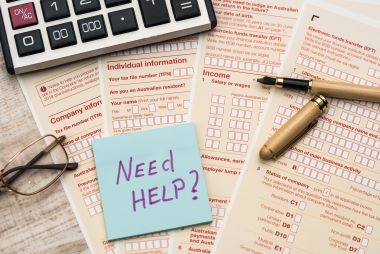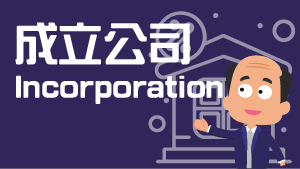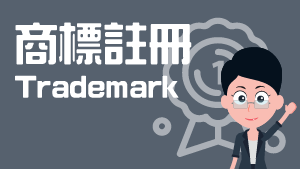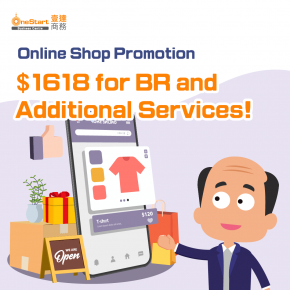Related Article:
Steps to Open a Company in Mainland China
Pros and Cons of Operating a Business in Mainland China
Table of contents |
Are you planning to establish a foreign-invested enterprise in Mainland China? In recent years, Mainland China has provided increasing tax support for foreign-invested enterprises, attracting a large number of Hong Kong companies to enter the Mainland market. This article will briefly discuss the main tax categories for foreign-invested enterprises in Mainland China, helping you better plan and manage your company's taxes. Whether you are just considering or already operating a foreign-invested enterprise in Mainland China, this article will provide valuable information to help you easily navigate the Mainland business landscape.

Corporate Tax
For enterprises established in China (such as foreign-invested enterprises) or those with actual management institutions in China, The corporate income tax rate is 5% for profits below 3 million, and the standard tax rate is 25%. Foreign companies that do not have institutions or places established in China, or those with no actual connection between their income and China, should pay provisional income tax at a rate of 5-10% on their income sourced within China.
The taxable income for corporate income tax is mainly based on the company's profits. The taxable income is calculated as the total income for each tax year, minus non-taxable income, tax-exempt income, various deductions, and the balance of previous year losses allowed to be carried forward.
Corporate tax is calculated on a tax year basis (from January 1st to December 31st). It is pre-paid on a monthly or quarterly basis and settled at the end of the year. Enterprises should submit the prepayment corporate income tax declaration form and pay the prepayment tax within 15 days from the end of the month or quarter. Within 5 months from the end of the tax year, enterprises should submit the annual corporate income tax declaration form to the tax authorities, calculate the final tax liability, and settle the payable or refundable tax.
Value-Added Tax
Units or individuals selling goods or providing processing, repair, and maintenance services, as well as importing goods within China, are required to pay value-added tax at the specified stages of circulation. Foreign-invested enterprises that purchase domestic equipment within the total investment amount, and if the equipment falls within the scope of the duty-free import list, may be eligible for a full refund of the value-added tax on domestic equipment.
The main tax rates for different categories are as follows:
| Category | Tax Rate |
| Sale or importation of goods, processing, repair, and maintenance services, tangible movable property leasing services |
13% |
| Real estate leasing services, sale of real estate, construction services, transportation services, transfer of land use rights, etc. |
9% |
| Postal services, telecommunications services, financial services, modern services, living services, sales of intangible assets (excluding land use rights), etc. |
6% |
| Export of goods |
0% |
For small-scale taxpayers (with annual taxable service sales not exceeding 5 million RMB), they can calculate and pay value-added tax at a simplified rate of 3% and enjoy exemption from value-added tax for monthly sales below 150,000 RMB.
Consumption Tax
Consumption tax is an additional tax levied on specific consumer goods, excluding value-added tax and business tax. The calculation method of consumption tax varies based on the taxable consumer goods, either based on sales volume or sales value, with tax rates usually ranging from 1% to 56%.
Scope of taxable consumer goods:
- Category 1: Special consumer goods that may pose risks to human health, social order, ecological environment, etc., such as tobacco, alcohol, firecrackers, fireworks, etc.
- Category 2: Luxury goods and non-essential daily necessities, such as high-value jewelry, cosmetics, etc.
- Category 3: High-energy and high-end consumer goods, such as small cars, motorcycles, etc.
- Category 4: Non-renewable and substitute petroleum products, such as gasoline, petroleum, etc.
- Category 5: Products of certain fiscal significance, such as golf and golf equipment.
Local Surcharge Taxes
Local surcharge taxes include urban maintenance and construction tax, education surcharge, and local education surcharge. These taxes are calculated based on the actual amount of paid value-added tax and consumption tax, and are paid concurrently with these two taxes. The calculation method is to multiply the actual amount of the two taxes paid by the tax rates.
For example, in Beijing, the urban construction tax rates vary in different regions, ranging from 7%, 5%, to 1%. The education surcharge rate is 3%, and the local education surcharge rate is 2%.

Tariffs
Importers, exporters, and owners of imported goods are all responsible for paying tariffs. Foreign-invested enterprises that import raw materials, accessories, components, parts, packaging materials, and other items for processing and assembling finished products for overseas manufacturers or for manufacturing products for export may be exempted from import tariffs based on the actual quantity of finished products processed and exported. Alternatively, they may pay import tariffs upfront and then receive a refund based on the actual quantity of finished products processed and exported.
Cross-Border E-commerce Retail Import and Export Tax
In order to create a fair competitive market environment, the Chinese government levies tariffs, import value-added tax, and consumption tax on imported goods for cross-border e-commerce retail (business to consumer, or B2C) transactions. Individuals purchasing imported goods through cross-border e-commerce retail channels are required to fulfill their tax obligations, and the actual transaction price (including the retail price of the goods, shipping costs, and insurance fees) is regarded as the taxable price. E-commerce companies, e-commerce trading platform companies, or logistics companies can act as withholding agents.
According to the policy regulations, the annual transaction limit per person is 26,000 RMB, and the limit per transaction is 5,000 RMB. If the taxable price exceeds the per transaction limit but is below the annual transaction limit, and there is only one item in the order, it can be imported through cross-border e-commerce retail channels, and tariffs, import value-added tax, and consumption tax will be fully levied based on the applicable tax rates, with the transaction amount counted towards the annual transaction total.
Stamp Duty
Units and individuals listed in the "Stamp Duty Law" of the People's Republic of China are liable for stamp duty and must pay it according to the regulations.
Deed Tax
The units and individuals who transfer land or property rights within the territory of the People's Republic of China are liable for deed tax and must pay it according to the provisions of this law. The tax rate is usually between 3% and 5%. The basis for calculating deed tax is as follows:
- For the transfer of land use rights, sale of property, it is the transaction price determined by the land or property transfer contract, including the payable currency, as well as the price corresponding to physical goods and other economic benefits.
- For the exchange of land use rights, property exchange, it is the difference between the prices of the exchanged land use rights or property.
- For the donation of land use rights, property donation, and other transfers of land or property rights without prices, it shall be based on the market price of the transfer of land use rights or property sales as determined by law.
- The transaction price declared by the taxpayer and the price difference in the exchange shall be determined by the tax authority if it is significantly lower and without justified reasons.

Conclusion
whether you are a startup or an established company operating in mainland China for many years, understanding the tax matters for foreign-invested enterprises in mainland China is crucial for the smooth operation of your business or even take advantages from it. Seeking professional tax advice can ensure that your company enjoys a favorable tax environment in mainland China and minimizes tax risks to the greatest extent. Open a Mainland China branch office under the identity of a Hong Kong company is capable to apply for BUD funding. If you have more questions about establishing a company in China, OneStart Business Centre can provide further resources and consultations. Call 3575 6888 or WhatsApp OneStart Business Consultants for inquiries.
Click to WhatsApp OneStart:
Know More About Our Services:
 |
 |
 |













